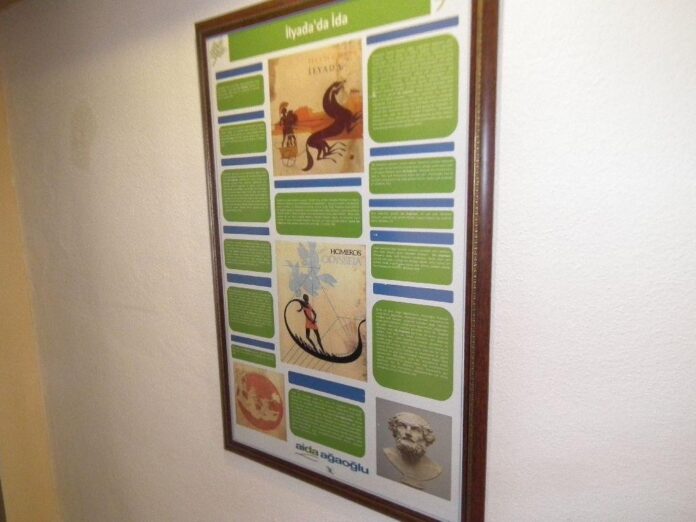Tragedy
Yet another ancient reference for leather is the famous Greek Theatre where, especially in the major tragedy plays, the actors carried or wore masks, and often clothing, made from goat skins. The word tragedy itself derived from the Greek tragoidia, tragos = goat and ode = song and indicates that cloth and masks were using goat skins, raw, but cleaned and also used hair-on. For garments it would have been softened but for masks the skin would have dried on a model, for the face or the whole head, shaved in those parts where the skin should be visible, but keeping the hair for the head and beard. The different goat skins allowed white hair for the philosopher, for instance, or black, wild hair for villain. Even today, many Venetian masks are still made using leather.
Actor’s Mask
Iliad, the Odyssey
Expressions in Illiada and Odissea indicate in detail the fields in which Anatolians have used leather. It is possible to read in this valuable book the stories of leather used in such fields as clothing products, household goods, vessels, war tools, hunting devices, tents, horse harnesses, agricultural items, transport supplies, musical instruments, sports games, punitive vehicles, parchment.
A wild ox’s hide was spread beneath
And a beautiful kilim beneath the head (the Iliad)
So he said and prepared a bed for him
Spreading the sheep and goat hide next to the fire
Odyssey laid down on the bed, and the shepherd threw the wooden cloth on him. (the Odyssey)
In Odyssey and the Iliad of Homer, the outfits of the characters have been described in detail from which we understand hides of various animals were used as clothes in the antique period.
|
|
|
Shoe production depicted on a Greek vase |




















